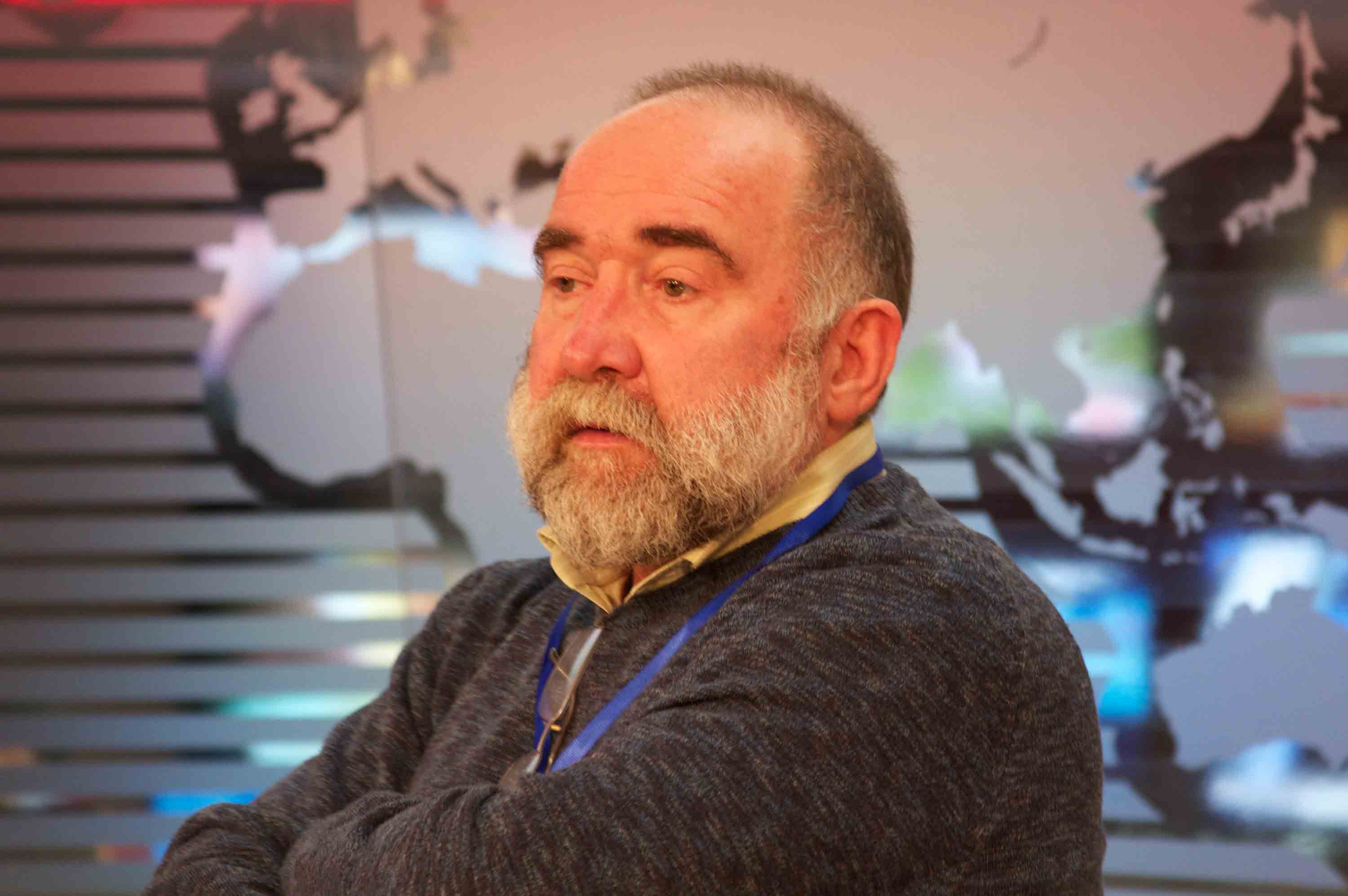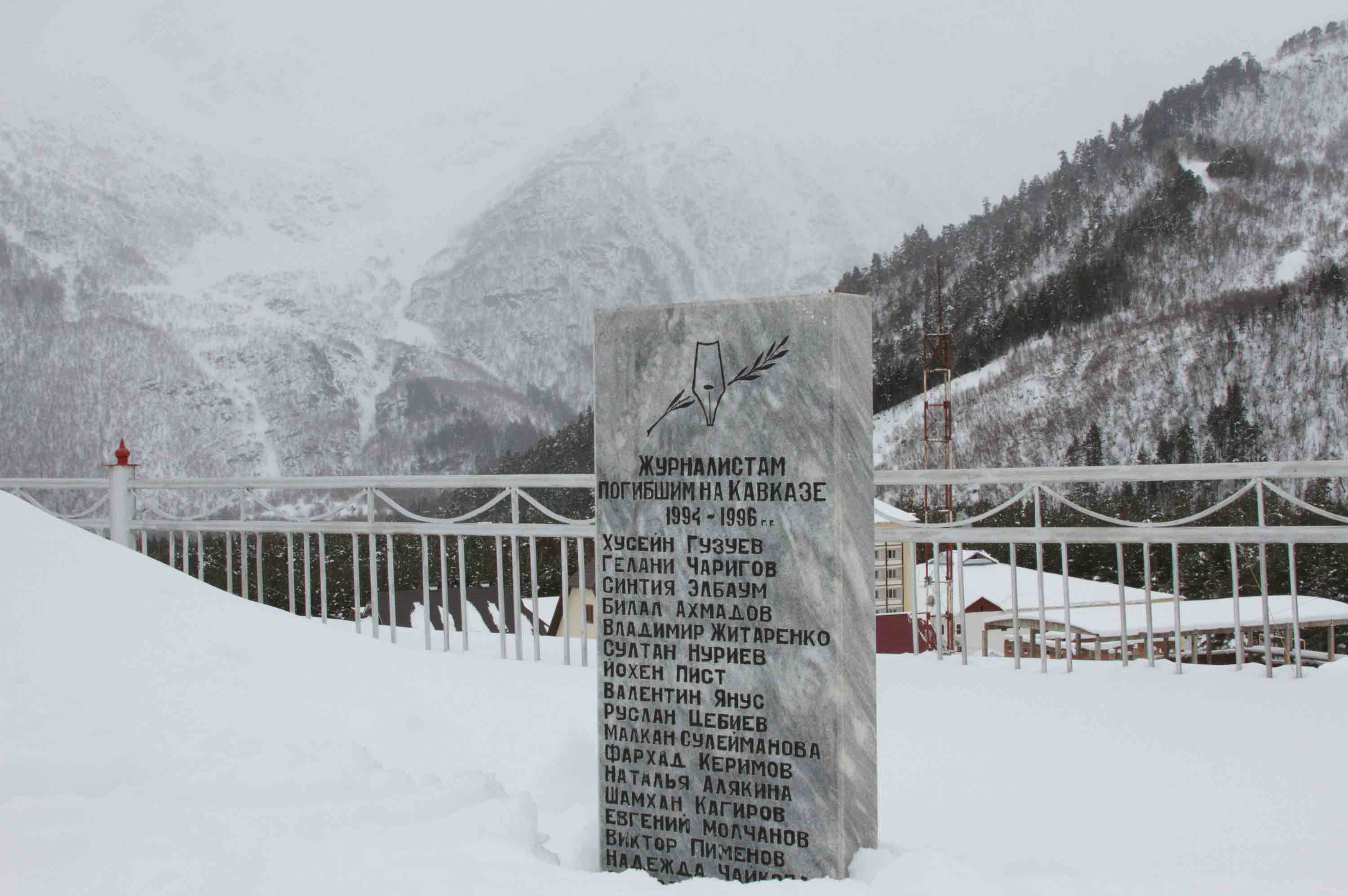
This post is part of a series of reports from Fatima's project on the brutal censorship of journalists in the North Caucasus published in advance of her upcoming feature story in the fall issue of the Nieman Reports.
In the fall of 2009 Oleg Panfilov bought a one-way ticket from Moscow to Tbilisi, Georgia.
In Tbilisi Panfilov is now a public celebrity. He works at the Georgian television channel First Caucasus TV and teaches journalism at the local university. He travels across Georgia discovering local culture and traditions that he shares with viewers on the a weekly TV program, "Georgia with Oleg Panfilov." He tells me that he lives the life of a happy, socially engaged man.
He is the author of 23 books and an internationally recognized expert on press freedoms and journalism in crisis. In the late 90's Panfilov founded and directed the Center for Journalism in Extreme Situations (CJES), which is focused on supporting media rights and freedoms in Russia. The CJES now works with a new director, but Panfilov remains on its board.
Panfilov's organization releases weekly and monthly monitoring reports on events concerning press freedom. It creates and evaluates profiles of journalists under pressure, analyzes changes in Russian civil and criminal codes that infringe on freedom of speech, and provides special training and literature for journalists in conflict zones.
In Panfilov's opinion Russian journalism is in deep crisis: "We began to record an estimated 60 or more criminal cases opening against journalists. Russia's criminal code is frequently used to target journalists. Now there are five articles in the criminal code and Russian Constitution that permit the prosecution of journalists for their professional activities. More and more, we confront the problems of bloggers, Internet forum members, etc. We have documented large numbers of court hearings brought against persons who try to express their opinions on the Internet."
For the past decade Panfilov had been banned from the Russian mainstream media and labeled an "enemy of Russia" because his organization accepted support from western foundations. In comparison to other journalists in my project it could be said that Panfilov made his choice with no 'rope around his neck'. It was a choice of a better life but also an escape from marginalization and alienation. He explains to me that not only did he feel hopeless for the future of journalism in Russia; he also was deeply disappointed in his own efforts to fight for press freedoms: "I felt so needless, wasting my life for something that no one else cared about in that country."
When I asked about my home region the North Caucasus Panfilov was even less optimistic: "When conversing about the North Caucasus, fewer and fewer times do I hear the word 'freedom'. In the beginning they forbid people from talking; then they forbid them from demonstrating; then they put pressure on one's relatives; then they take away one's business; then in the end they kill them. As a consequence, the atmosphere of fear has stifled the possibility of journalism in the Caucasus for the next 15 to 20 years."
Panfilov says that despite his pessimism he is not giving up. He plans to develop a school of journalism based in Tbilisi with support from Ilia State University. He hopes to bring young students from the North Caucasus on a special stipend and easier application procedure. He believes that it will be his personal contribution to the building of a better future for journalism in the troubled region.


